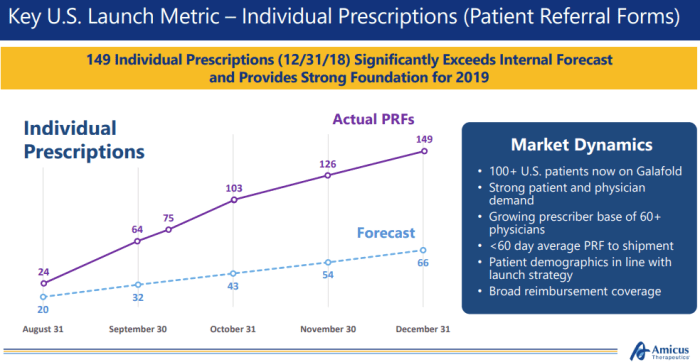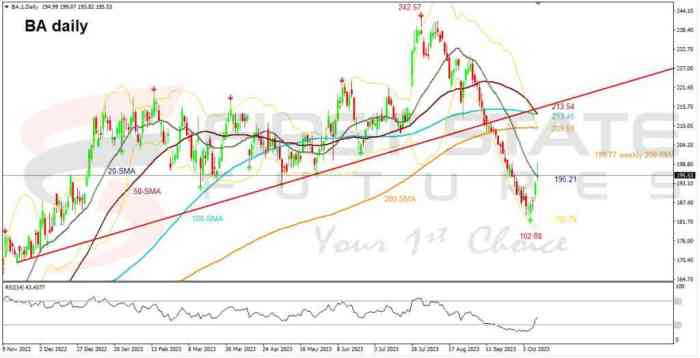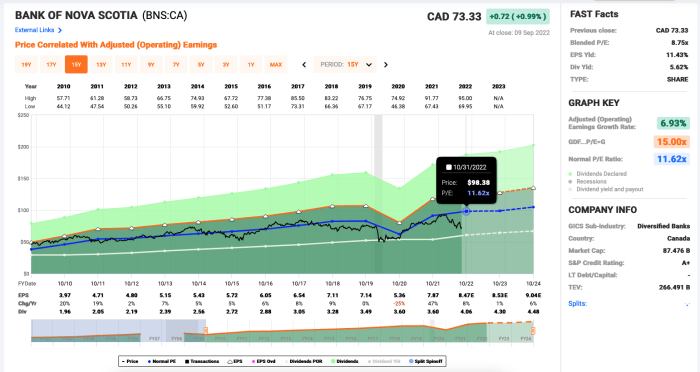Amicus Therapeutics Company Overview
Amicus stock price – Amicus Therapeutics is a biopharmaceutical company focused on the development and commercialization of therapies for rare and orphan diseases. Founded with a commitment to addressing unmet medical needs in the rare disease community, Amicus has steadily grown its portfolio of treatments and research efforts.
Company History and Mission
Amicus Therapeutics was established with the primary goal of providing effective treatments for patients suffering from rare genetic diseases. Its early focus centered on specific enzyme deficiencies, gradually expanding to encompass a broader range of rare conditions. The company’s mission remains steadfast in its commitment to improving the lives of individuals affected by these debilitating illnesses through innovative therapies.
Products and Pipeline
Amicus’s current portfolio includes approved therapies and a robust pipeline of investigational products. The company strategically balances its focus between commercialized products generating revenue and promising candidates in various stages of clinical development. This strategy aims for sustainable growth and a diversified revenue stream.
Amicus Therapeutics Product Portfolio
| Product Name | Indication | Development Stage | Key Features |
|---|---|---|---|
| [Product Name 1] | [Indication 1, e.g., Fabry disease] | [Stage, e.g., Approved] | [Key features, e.g., Enzyme replacement therapy, improved efficacy] |
| [Product Name 2] | [Indication 2, e.g., AT-deficient Pompe disease] | [Stage, e.g., Phase 3 clinical trials] | [Key features, e.g., Novel mechanism of action, potential for improved patient outcomes] |
| [Product Name 3] | [Indication 3, e.g., Another rare genetic disorder] | [Stage, e.g., Preclinical development] | [Key features, e.g., Gene therapy approach, potential for long-term treatment] |
| [Product Name 4] | [Indication 4, e.g., Another rare genetic disorder] | [Stage, e.g., Phase 2 clinical trials] | [Key features, e.g., Small molecule therapy, improved tolerability] |
Factors Influencing Amicus Stock Price
Several key factors significantly impact Amicus Therapeutics’ stock valuation. Understanding these influences is crucial for investors seeking to assess the company’s potential.
Financial Metrics and Stock Valuation
Key financial metrics such as revenue growth, profitability (or the path toward profitability), research and development expenses, and overall financial stability directly influence Amicus’s stock price. Positive financial performance typically correlates with higher stock valuations, while setbacks can lead to price declines. Investors closely monitor these indicators to gauge the company’s long-term viability and potential for return on investment.
Clinical Trial Results and Stock Price Volatility
The results of Amicus’s clinical trials have a profound effect on its stock price. Positive data often leads to significant price increases, reflecting investor confidence in the potential success of the company’s pipeline. Conversely, negative or inconclusive results can cause sharp drops, reflecting concerns about the future prospects of the company’s therapies. This volatility underscores the inherent risk associated with investing in biotechnology companies heavily reliant on clinical trial outcomes.
Regulatory Approvals and Stock Price Reactions
Regulatory approvals and setbacks significantly influence Amicus’s stock price. Successful approvals for new therapies typically trigger substantial price increases, as they unlock commercial opportunities and revenue streams. Conversely, regulatory delays or rejections can result in substantial price declines, reflecting investor uncertainty about the future commercialization of the company’s products. The regulatory landscape presents a significant risk and opportunity for Amicus and its investors.
Competitive Landscape and Market Share
Amicus operates within a competitive biopharmaceutical landscape. The performance of its competitors, particularly those developing treatments for similar rare diseases, influences its stock price. Amicus’s ability to maintain a competitive edge through innovation, market share gains, and strategic partnerships directly impacts investor confidence and the overall valuation of the company.
Amicus Stock Price Historical Performance
Analyzing Amicus’s stock price fluctuations over the past five years provides valuable insights into its performance and the factors influencing its trajectory. A visual representation of this data, such as a line graph, enhances understanding.
Five-Year Stock Price Fluctuation Graph

Source: seekingalpha.com
Understanding the Amicus stock price requires a broader look at the market. For comparative analysis, examining the historical performance of similar companies is beneficial; a good example would be to review the alb stock price history , which offers insights into potential market trends. Returning to Amicus, this comparative analysis can help investors better assess its current valuation and future prospects.
A line graph depicting Amicus’s stock price over the past five years would show the price on the y-axis and time (in years or months) on the x-axis. Key data points to include would be significant highs and lows, points corresponding to major clinical trial announcements (positive or negative), regulatory approvals or rejections, and any major financial events impacting the company.
The graph would clearly illustrate the overall trend of the stock price, highlighting periods of growth, decline, and volatility.
Significant Events and Price Movements
Examples of significant events that would correlate with major price movements include the approval of a new drug, publication of positive clinical trial results, announcement of a major partnership or acquisition, or news of a regulatory setback or financial difficulty. Each of these events would be clearly marked on the hypothetical graph and described in accompanying text to explain the correlation between the event and the subsequent price movement.
Overall Stock Price Trend Summary
The overall trend in Amicus’s stock price over the past five years could be characterized as either upward, downward, or sideways, with fluctuations around the general trend. This summary would offer a concise overview of the stock’s performance, highlighting the key periods of growth or decline and providing context for understanding the overall trajectory. For example, the summary might note a period of strong growth fueled by positive clinical trial data, followed by a period of consolidation or a decline due to market headwinds or regulatory challenges.
Analyst Ratings and Predictions
Analyst ratings and price targets offer valuable insights into the market sentiment surrounding Amicus Therapeutics stock. However, it’s important to note that these are opinions and not guarantees of future performance.
Summary of Analyst Ratings and Price Targets, Amicus stock price

Source: intechconstruction.com
- [Analyst Firm 1]: Buy rating, Price target: $[Target Price]
- [Analyst Firm 2]: Hold rating, Price target: $[Target Price]
- [Analyst Firm 3]: Sell rating, Price target: $[Target Price]
Rationale Behind Differing Analyst Opinions
Divergent analyst opinions often stem from differing assessments of Amicus’s clinical pipeline, market potential, competitive landscape, and financial projections. Some analysts might be more optimistic about the success of specific drug candidates, leading to higher price targets, while others might be more cautious, resulting in lower targets or even sell recommendations. These differing perspectives reflect the inherent uncertainty in the biotechnology industry and the challenges in predicting future performance.
Comparison of Analyst Ratings and Target Prices

Source: dreamstime.com
| Analyst Firm | Rating | Target Price |
|---|---|---|
| [Analyst Firm 1] | [Rating, e.g., Buy] | $[Target Price] |
| [Analyst Firm 2] | [Rating, e.g., Hold] | $[Target Price] |
| [Analyst Firm 3] | [Rating, e.g., Sell] | $[Target Price] |
Investment Considerations for Amicus Stock: Amicus Stock Price
Investing in Amicus Therapeutics, like any biotechnology company, involves both potential rewards and significant risks. A thorough assessment of these factors is crucial before making an investment decision.
Potential Risks
- Clinical trial failures
- Regulatory setbacks
- Competition from other biopharmaceutical companies
- Market volatility
- Financial risks associated with a development-stage company
Potential Rewards
- High growth potential in the rare disease market
- Potential for significant returns if clinical trials are successful
- First-mover advantage in certain therapeutic areas
- Strong intellectual property portfolio
Risk-Reward Profile Comparison
The risk-reward profile of Amicus should be compared to other investments in the biotech sector by considering the relative risk and potential return of similar companies. Amicus, being a development-stage company with a focus on rare diseases, will generally have a higher risk profile compared to established pharmaceutical companies with diversified revenue streams. However, the potential rewards are also significantly higher due to the potential for substantial returns if its drug candidates are successful.
Key Factors for Investor Consideration
- The company’s clinical pipeline and the likelihood of success for its drug candidates
- The competitive landscape and Amicus’s market position
- The company’s financial position and its ability to fund its research and development activities
- The regulatory environment and the potential for regulatory approvals or setbacks
- The overall market conditions and investor sentiment towards the biotechnology sector
Impact of Market Conditions on Amicus Stock
Broader market trends and investor sentiment significantly influence Amicus’s stock price, regardless of the company’s specific performance.
Influence of Broader Market Trends
Economic conditions, interest rates, and overall market sentiment can significantly impact Amicus’s stock price. During periods of economic uncertainty or rising interest rates, investors may shift towards less risky investments, leading to a decline in Amicus’s stock price. Conversely, positive economic conditions and low interest rates can create a more favorable environment for investment in growth stocks, potentially boosting Amicus’s valuation.
Effect of Investor Sentiment and Market Volatility
Investor sentiment plays a crucial role in determining Amicus’s stock price. Positive news about the company’s clinical trials or financial performance can lead to increased investor confidence and higher stock prices. Conversely, negative news or broader market volatility can trigger sell-offs, regardless of the company’s underlying fundamentals. The biotechnology sector is known for its volatility, making Amicus particularly susceptible to market swings.
Significant Macroeconomic Factors
Significant macroeconomic factors that might impact Amicus in the future include changes in healthcare spending, government regulations affecting the pharmaceutical industry, global economic growth, and geopolitical events. These factors can create uncertainty in the market and affect investor confidence, influencing Amicus’s stock price. For example, changes in healthcare spending policies could directly affect the company’s revenue potential, while geopolitical instability might create broader market uncertainty that negatively impacts investor sentiment.
FAQ Compilation
What are the major risks associated with investing in Amicus?
Major risks include the failure of clinical trials, regulatory setbacks, intense competition within the biotech industry, and general market volatility.
How does Amicus compare to its competitors?
A comparative analysis against competitors requires detailed examination of their respective pipelines, market share, and financial performance. This analysis should consider factors like product differentiation, regulatory approvals, and market capitalization.
Where can I find real-time Amicus stock price data?
Real-time stock price data is available through major financial news websites and brokerage platforms.
What is the company’s current market capitalization?
The current market capitalization can be found on financial news websites and stock market data providers. It fluctuates constantly.










